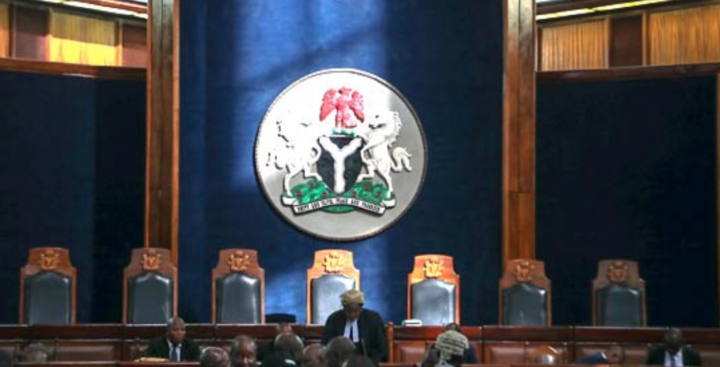The supreme court has nullified President Muhammadu Buhari’s executive order 10.
Buhari, on May 22, 2020, signed the order granting financial autonomy to the legislature and the judiciary in the 36 states of the federation.
The order empowers the accountant-general of the federation to deduct funds for the state legislature and the judiciary from the federation allocations to the states.
However, all the 36 states through their attorneys-general filed a suit on September 17, 2020, contending the constitutionality of the executive order.
Advertisement
The plaintiffs said with the executive order, the federal government’s responsibility of funding capital and recurrent expenditures of state high courts, sharia court of appeal and customary court of appeal has been pushed to the state governments.
In a split decision on Friday, the majority of the court’s seven-member panel agreed that the president exceeded his constitutional powers in issuing the EO10.
Six out of the seven members of the panel proceeded to void and set aside the EO10.
Advertisement
The apex court held that Buhari acted beyond his powers by signing the EO10.
According to the majority judgment read by Mohammed Dattijo, the EO10 violates the provisions of the 1999 constitution, which clearly stipulates the functions and powers of heads of each arm of the government.
“This country is still a federation and the 1999 constitution it operates is a federal one. The constitution provides a clear delineation of powers between the state and the federal government,” Dattijo said.
“The president has overstepped the limit of his constitutional powers by issuing the executive order 10.
Advertisement
“The country is run on the basis of the rule of law.”
Add a comment






